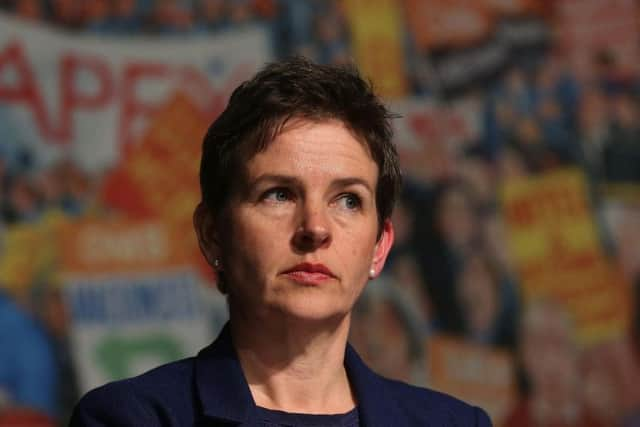How the number of undecided voters in places like Wakefield might yet save Labour's red wall from being reduced to rubble
This sentiment, one suspects, is held by voters across the city, as well as Yorkshire and the country at large, less than a week from what is described as the most important General Election of a generation.
The polls appear to show Boris Johnson's Conservatives on course for a small majority, turning a decent handful of 'Labour leave' seats blue in the process.
Advertisement
Hide AdAdvertisement
Hide AdWakefield, which has been held by Labour since the 1930s, would appear to be among them, with most bookmakers putting the Tories as firm favourites to oust Mary Creagh. And this week a crew from Newsnight filmed in the city, citing it as an example of one of the bricks in the so-called 'red wall' which could be about to crumble across the North.
A senior Labour source in Yorkshire confirmed that many in the party believe the 2,000 vote majority of Ms Creagh, an ardent Remainer who refused to back the triggering of Article 50 back in 2017, will be overturned on December 12.
They are also worried about neighbouring seats held by Labour heavyweights Yvette Cooper and Jon Trickett, who have much bigger majorities, being at risk.


One thing to bear in mind is that while Wakefield has been a Labour seat for more than eight decades, it's far from a Labour stronghold. The Labour majority was as low as 360 votes at the height of Thatcherism in the 1980s but rose above 14,000 in the New Labour years.
Advertisement
Hide AdAdvertisement
Hide AdIt appears many previous Labour voters locally are unable to back them this time round. One staunch Labour supporter told me he would never vote for Jeremy Corbyn while other locals spoke of the anger felt by many that Ms Creagh - a councillor in the London borough of Islington before becoming MP - is defying the wishes of the 63 per cent of the population who voted to Leave. But the trend also works in the opposite direction.
There are also undoubtedly previous Tory voters who are wavering, either because of the Brexit saga, their dislike of Boris Johnson or the general tone that politics has been conducted in over the last two or three years.
Despite his many eye-catching promises to northern voters, enthusiasm for Boris Johnson as a person is far from widespread. A poll for The Yorkshire Post earlier this year showed that fewer than three out of ten people in our region had faith in Mr Johnson's promise to deliver better transport links.
The picture that came across to me from speaking to Wakefield voters this week is that many are yet to make up their mind and are unimpressed with the choices before them. Voters are turning away from the Lib Dems and the Brexit Party after a strong start, but it's unclear in which direction.
Advertisement
Hide AdAdvertisement
Hide AdThose who I spoke to in Wakefield city centre who did express a voting preference often seem to define it in terms of who they were against, rather than who they were for.
Combine that uncertainty with the value of being an incumbent Labour MP, the low turnout due to the time of year and bad weather, the whole thing becomes a lot more unpredictable. Another Labour source told me that, were they a betting person they would be backing Ms Creagh to narrowly hold onto their seat, despite the polling.
In an area that has suffered hugely under austerity, it's not hard to imagine that a well-delivered message about protecting the NHS could yet change the minds of enough voters to save Mary Creagh and other Labour figures like her across Yorkshire.
Labour has been attempting to get that message across for the last month, trying to get onto its favoured turf of the NHS and away from Brexit. Time is now running out to make any major gains, but with so many voters yet to make up their mind it may not yet be a foregone conclusion that the red wall will be reduced to rubble.
